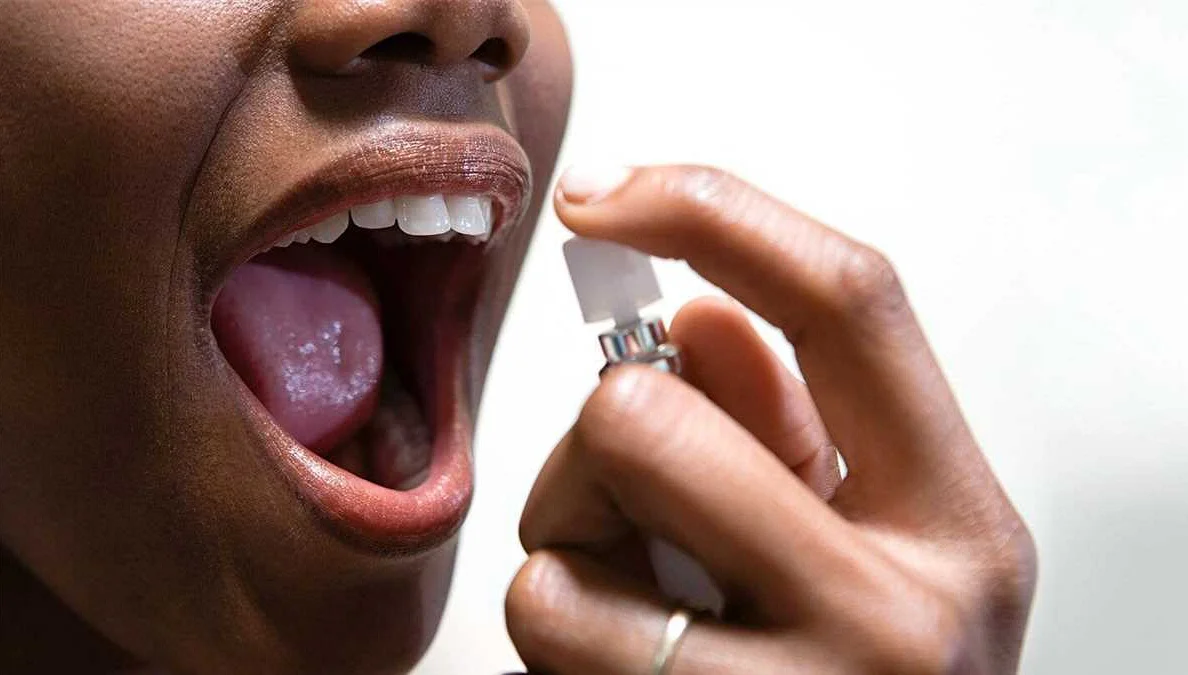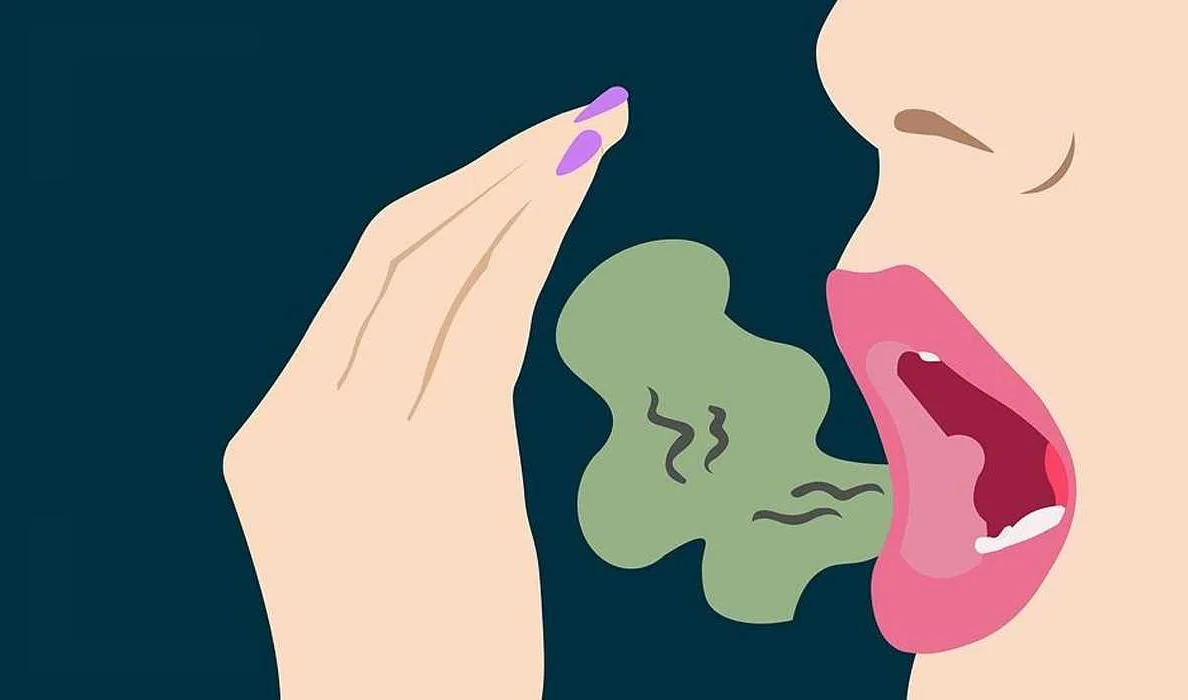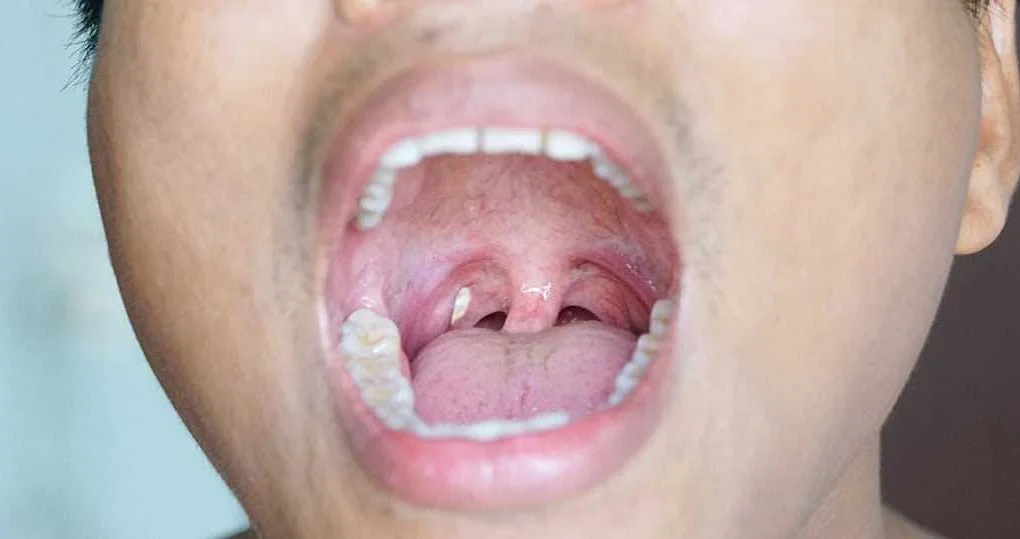Causes of Bad Breath and Which Doctor to Consult
Содержимое
Learn why bad breath occurs and find out which type of doctor to see for treatment. Discover the causes of bad breath and how to prevent it.
Bad breath, also known as halitosis, is a common condition that affects many people. It can be embarrassing and have a negative impact on an individual’s self-esteem and social interactions. While occasional bad breath is normal, persistent bad breath can be a sign of an underlying health issue that requires attention.
There are several causes of bad breath, and the key to effectively treating it lies in identifying the root cause. One of the most common causes is poor oral hygiene. Not brushing and flossing regularly allows bacteria to accumulate in the mouth, leading to unpleasant odors. Another common cause is gum disease, which can cause an infection and release an unpleasant smell. Other factors that can contribute to bad breath include dry mouth, certain foods and drinks, tobacco use, and certain medical conditions.
If you are experiencing persistent bad breath, it is important to consult a doctor to determine the underlying cause. The first step is to visit a dentist, as they specialize in oral health and can identify any dental issues that may be causing the bad breath. The dentist will conduct a thorough examination of your mouth and may recommend a professional cleaning or treatment for gum disease. If the dentist determines that your oral health is not the cause of the problem, they may refer you to a medical doctor or specialist for further evaluation.
In some cases, bad breath can be a symptom of an underlying medical condition such as respiratory infections, sinusitis, diabetes, liver or kidney problems, or gastrointestinal issues. These conditions require specific medical attention, and a doctor will be able to diagnose and treat them accordingly. It is important to communicate all symptoms and concerns to your doctor in order to receive the appropriate care.
In conclusion, bad breath can be caused by various factors, and it is essential to consult a doctor to determine the underlying cause. Whether it is a dental issue or a medical condition, seeking professional help is crucial in effectively treating and managing bad breath. Remember, maintaining good oral hygiene and addressing any dental or medical issues promptly can help prevent and alleviate bad breath, contributing to better overall health and well-being.
Causes of Bad Breath:
Bad breath, also known as halitosis, can be caused by a variety of factors. These factors can range from poor oral hygiene practices to underlying medical conditions. Here are some common causes of bad breath:
| Poor Oral Hygiene | Not brushing and flossing regularly can lead to a buildup of bacteria in the mouth, which can cause bad breath. |
| Food and Drink | Consuming certain foods and drinks, such as garlic, onions, and coffee, can leave an unpleasant odor in the mouth. |
| Smoking and Tobacco Use | Smoking and using tobacco products can not only stain the teeth and gums but also cause bad breath. |
| Dry Mouth | A decrease in saliva production can result in dry mouth, which can contribute to bad breath. |
| Infections | Infections in the mouth, such as gum disease, tooth decay, or oral thrush, can cause bad breath. |
| Medical Conditions | Certain medical conditions, such as sinus infections, respiratory tract infections, and digestive disorders, can lead to bad breath. |
If you are experiencing chronic bad breath, it is recommended to consult with a dentist or a doctor. They can evaluate your oral health and overall wellbeing to determine the underlying cause of your bad breath and provide appropriate treatment.
Poor Oral Hygiene

Poor oral hygiene is one of the main causes of bad breath. When proper oral care is not maintained, bacteria can build up in the mouth and cause unpleasant odors. Here are some factors that contribute to poor oral hygiene:
- Inadequate brushing and flossing: Not brushing and flossing regularly allows bacteria to accumulate on the teeth, gums, and tongue, leading to bad breath.
- Improper brushing technique: Brushing too quickly or applying too much pressure may not effectively remove bacteria and plaque from the mouth.
- Infrequent dental visits: Regular dental check-ups and cleanings are essential for maintaining good oral health and preventing bad breath.
- Using tobacco products: Smoking or chewing tobacco can not only stain the teeth and cause gum disease, but it can also lead to persistent bad breath.
- Poor diet: Consuming foods with strong odors, such as garlic and onions, can cause temporary bad breath. Additionally, a diet lacking in essential nutrients can contribute to oral health problems.
If you have poor oral hygiene, it is important to take steps to improve your dental care routine. Brush your teeth at least twice a day, floss daily, and use an antimicrobial mouthwash. Additionally, make sure to schedule regular dental check-ups to address any underlying oral health issues. Consulting a dentist is crucial in maintaining proper oral hygiene and preventing bad breath.
Dental Issues
Dental issues are one of the leading causes of bad breath. Poor oral hygiene can result in the buildup of plaque and bacteria, which can lead to gum disease and tooth decay. These dental issues can release foul-smelling gases that contribute to bad breath.
One common dental issue that can cause bad breath is gum disease, also known as periodontal disease. This occurs when there is an infection in the gums, causing them to become inflamed and swollen. The bacteria released by gum disease can produce a distinct odor that leads to bad breath. Regular dental cleanings and proper oral care can help prevent and treat gum disease.
Tooth decay is another dental issue that can contribute to bad breath. When tooth decay occurs, bacteria break down the tooth structure, causing a foul smell. It is important to maintain good oral hygiene practices, such as brushing twice a day, flossing, and visiting the dentist regularly, to prevent tooth decay and the resulting bad breath.
Another dental issue that can cause bad breath is dry mouth, also known as xerostomia. Saliva helps to wash away bacteria and food particles in the mouth. When there is a lack of saliva, bacteria can multiply, leading to bad breath. Dry mouth can be caused by certain medications, medical conditions, or simply by not drinking enough water. Drinking plenty of water and using saliva-stimulating products can help alleviate dry mouth and reduce bad breath.
If you are experiencing bad breath due to dental issues, it is important to consult a dentist. A dentist can examine your oral health, identify any underlying dental issues, and provide appropriate treatment. They can also provide guidance on proper oral hygiene practices to prevent further dental problems and maintain fresh breath.
Dry Mouth

Dry mouth, also known as xerostomia, is a condition in which the salivary glands in the mouth do not produce enough saliva to keep the mouth moist. This can lead to a variety of problems, including bad breath.
Saliva plays an important role in maintaining oral health. It helps to lubricate the mouth, making it easier to talk, eat, and swallow. Saliva also helps to wash away bacteria and food particles, preventing them from accumulating in the mouth and causing bad breath.
When the mouth is dry, there is a lack of saliva to wash away bacteria and food particles. This can result in the growth of bacteria, which can produce foul-smelling compounds that cause bad breath.
There are several causes of dry mouth, including certain medications, medical conditions, and lifestyle factors. Some medications, such as antihistamines, antidepressants, and diuretics, can cause dry mouth as a side effect. Medical conditions like Sjogren’s syndrome, diabetes, and autoimmune disorders can also lead to dry mouth. Lifestyle factors such as smoking, excessive caffeine consumption, and breathing through the mouth can contribute to dry mouth as well.
If you are experiencing dry mouth and bad breath, it is important to consult a dentist or an oral health professional. They can help determine the underlying cause of your dry mouth and develop a treatment plan to alleviate your symptoms. In some cases, they may refer you to a specialist, such as a periodontist or an otolaryngologist, for further evaluation and treatment.
To manage dry mouth and prevent bad breath, it is important to maintain good oral hygiene. This includes brushing your teeth twice a day, flossing daily, and using mouthwash. Drinking plenty of water and avoiding tobacco and alcohol can also help alleviate dry mouth symptoms. Additionally, there are over-the-counter saliva substitutes and prescription medications that can help stimulate saliva production and relieve dry mouth.
Sinus or Throat Infections

Sinus or throat infections can also contribute to bad breath. Sinus infections occur when the nasal passages become infected and inflamed. This can cause mucus to build up, leading to a foul smell. Similarly, throat infections, such as tonsillitis or strep throat, can also result in bad breath.
If you have a sinus or throat infection and are experiencing bad breath, it is important to consult a doctor. They can diagnose the infection and prescribe appropriate treatment, such as antibiotics or antifungal medication. In some cases, surgery may be necessary to alleviate chronic sinus infections.
It’s important to note that bad breath caused by sinus or throat infections will likely be accompanied by other symptoms, such as nasal congestion, sore throat, or cough. If you suspect that you have a sinus or throat infection, it’s best to seek medical attention promptly to prevent further complications.